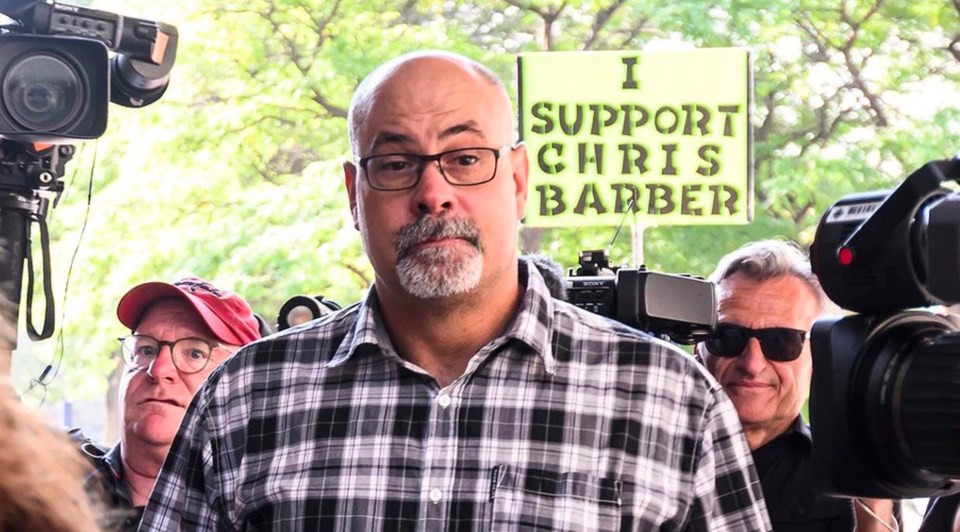OTTAWA, Ont. – The trial for Saskatchewan’s Chris Barber – a trucker who headed the Freedom Convoy – starts back up Wednesday at the Ontario Court of Justice in Ottawa.
Barber was arrested near Parliament Hill on Feb. 17, 2022, three days after Prime Minister Justin Trudeau invoked the Emergencies Act and one day before hundreds of police officers in tactical gear advanced on Parliament Hill to remove peaceful protesters.
“In the midst of severe government restrictions, these peaceful protesters managed to have their voices heard, standing up to defend all of our Charter rights against unjust and unscientific government policies,” said Barber’s defence lawyer John Carpay, president of the Justice Centre for Constitutional Freedoms on Wednesday.
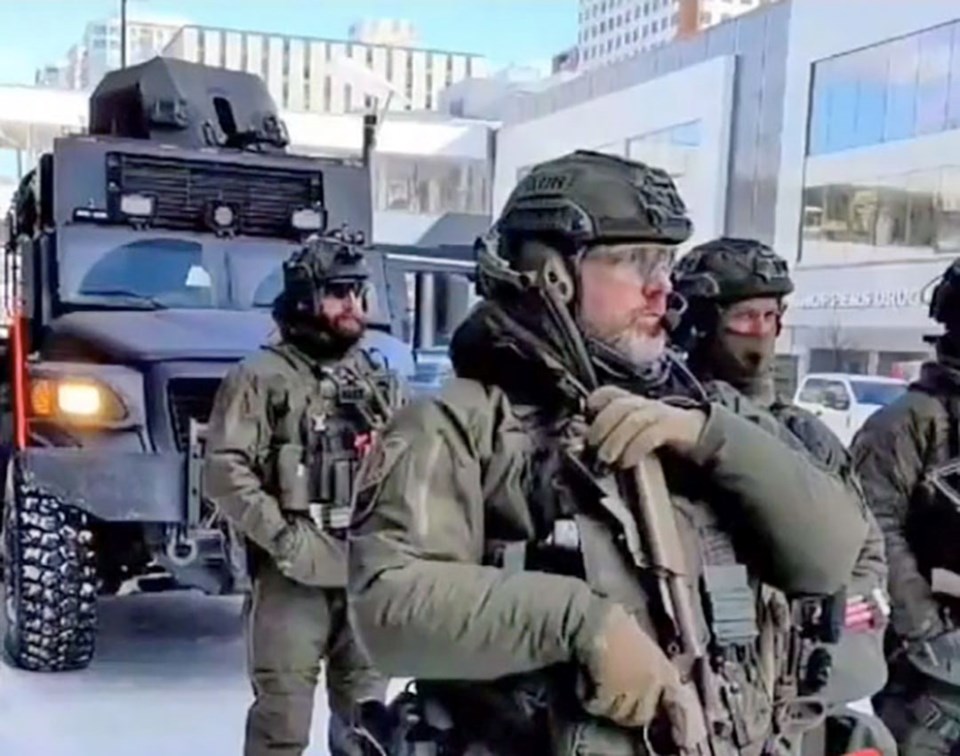
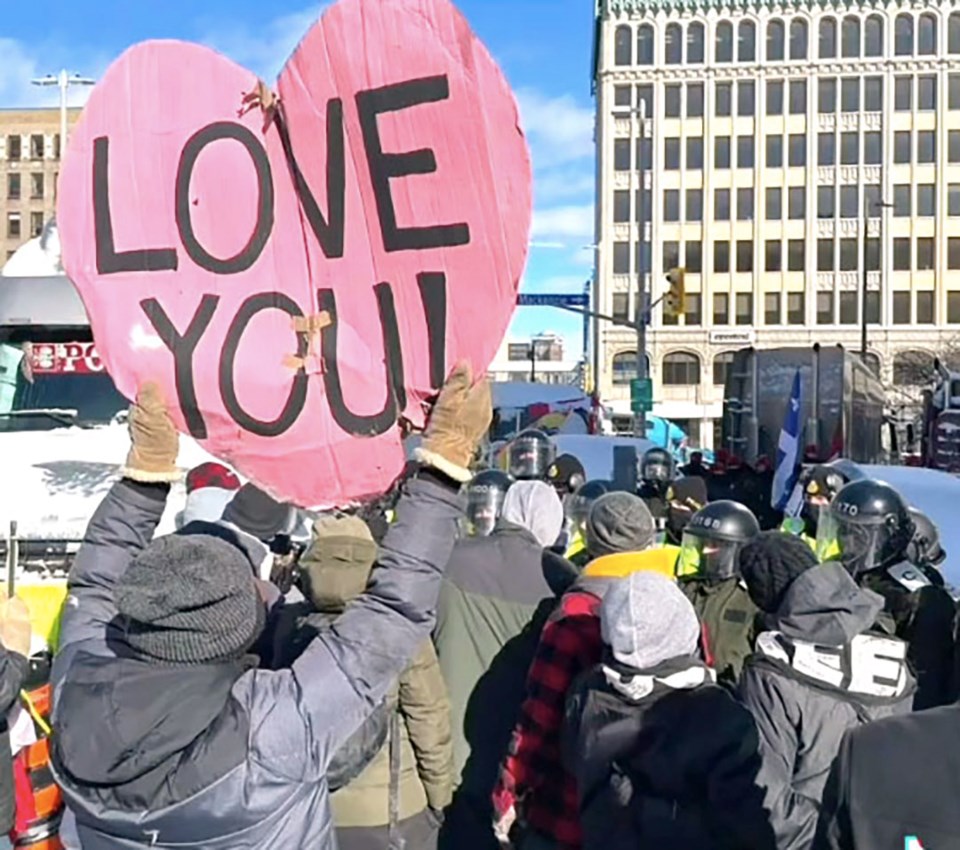
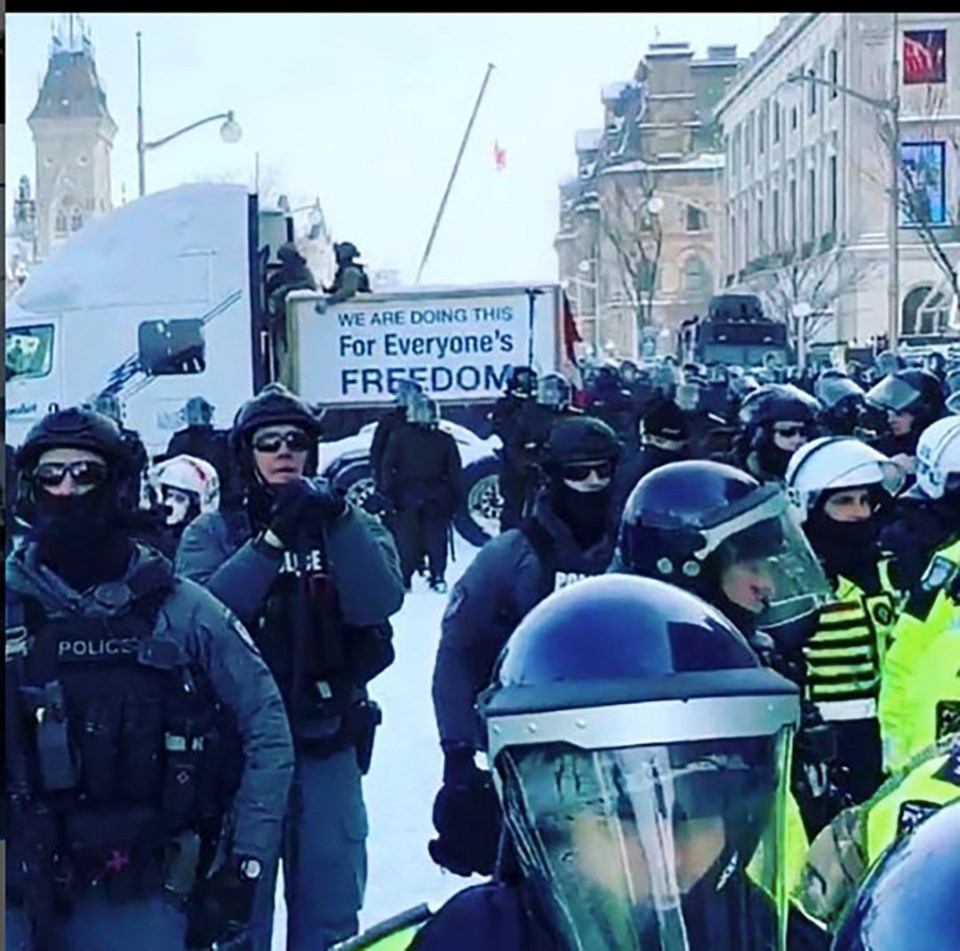
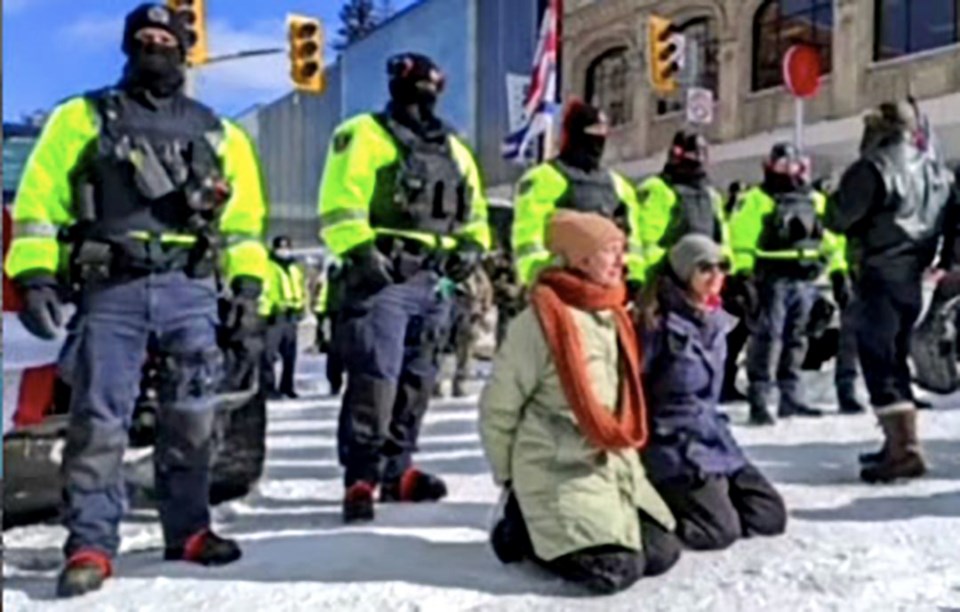
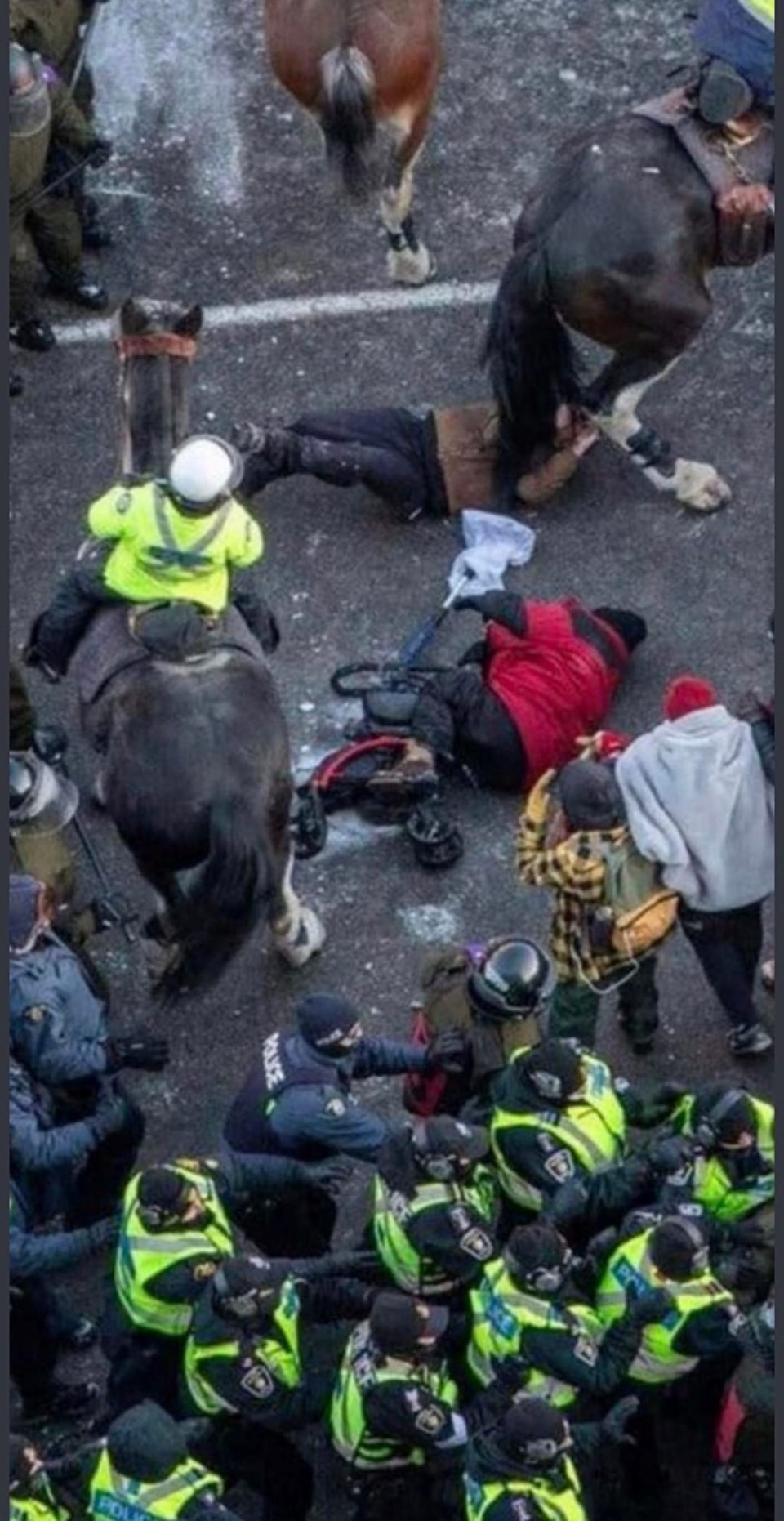
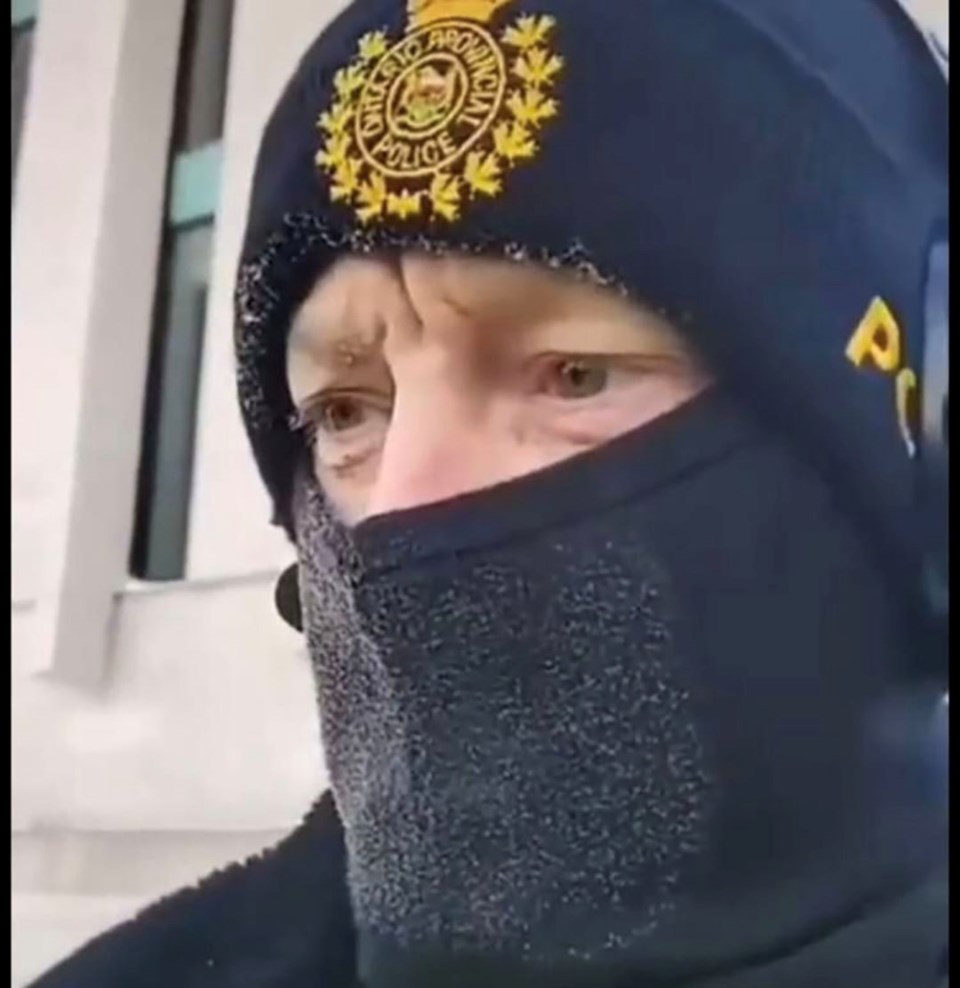
Barber, who owns a trucking company in Swift Current, was released on bail Feb. 18, 2022.
Barber, and Tamara Lich from Alberta, were charged with mischief, intimidation, obstructing a highway, obstructing a police officer, and counselling others to commit the same offences. These charges stem from their involvement in the peaceful Freedom Convoy protest in Ottawa in January and February of 2022.
Barber’s trial started on Sept. 5 and was scheduled to run 16 days but after 13 days, the Crown wasn’t ready to wrap up its case and asked the court for more time. Judge Justice Heather Perkins-McVey will schedule additional court dates.
On Wednesday, the judge is expected to rule on whether or not Ottawa residents can testify.
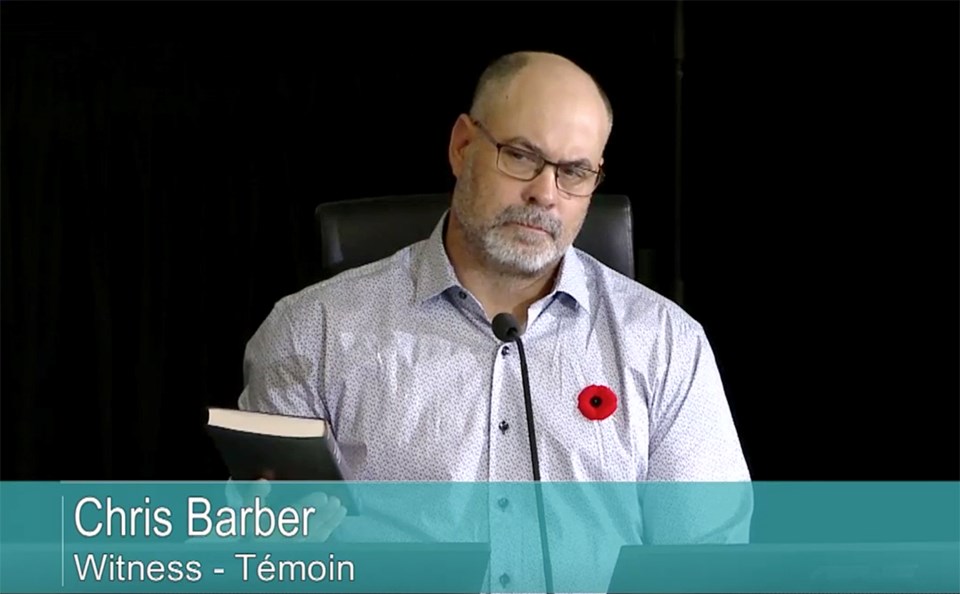
Barber testified at public inquiry
In November 2022, Barber testified at the Public Order Emergency Commission.
“We were told by the lawyers on a daily basis that we were a legitimate protest, we were allowed to be there, we were doing the right things,” Barber told the inquiry. “And the last thing I wanted to do was wreck that for the people that we were trying to represent and there was a ton of support all across the country, all over the world, really."
Barber spearheaded the Freedom Convoy with fellow Ontario trucker Brigitte Belton to protest the federal government’s cross-border vaccine mandate that came into effect Jan. 15, 2022, and meant that unvaccinated truckers would no longer be allowed to cross the border. He said Belton and other independent truckers were going to lose their livelihood because of the vaccine mandate.
“That was the last straw,” Barber – who is vaccinated – told the inquiry.
“The federal overreach had gone too far. It was very frustrating.
“People’s parents were dying in hospital beds alone, there were mental health issues. My 16-year-old unvaccinated daughter was bullied at school. She had to play her clarinet in a separate room.”
Barber – who was never politically active previously - said the industry wasn’t losing drivers prior to the federal government’s COVID-19 restrictions. He said they forced 35 to 40 per cent of Canadian truckers off the road, not the 10 per cent that the government claimed.
“Freight was backed up on both sides of the border.”
Barber said that all he and the truckers wanted was for the federal government to listen to them.
“I primarily wanted the government to listen to our concerns.”
During the vaccine restrictions in Canada, truckers weren’t able to go into restaurants to eat or use their facilities.
“We were not allowed to enter restrooms. I had to eat in my truck. Bathrooms were closed. It was really tricky.”
Barber said there weren’t any specific leaders and the movement spread and grew on social media with hundreds of thousands following the organizers.
The convoy
Barber led the approximate 2,500 vehicles in the West convoy into Ottawa, which started in British Columbia, he testified.
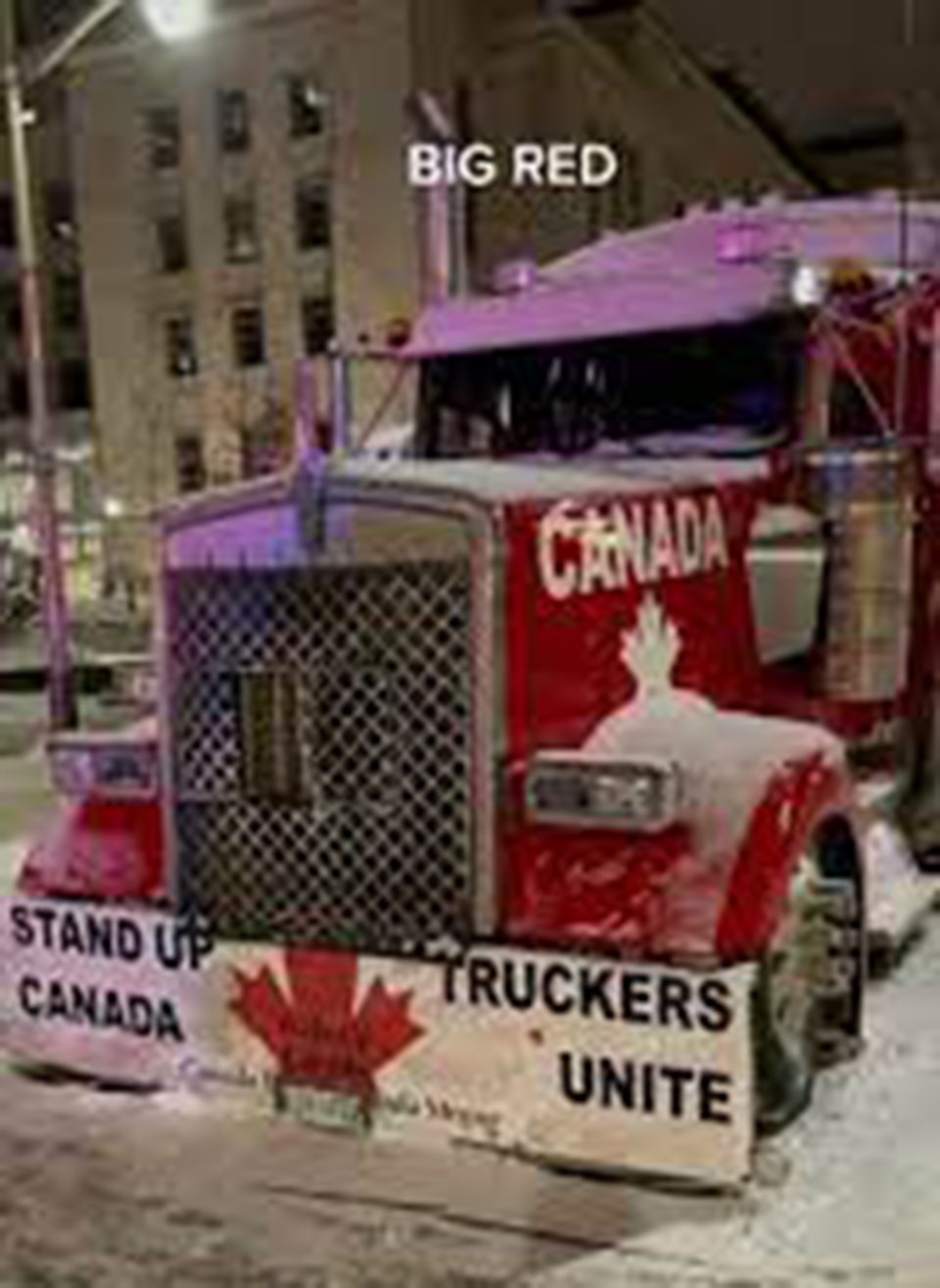
Thousands of people stood along highways and overpasses to get a glimpse of the convoy headed to Ottawa.
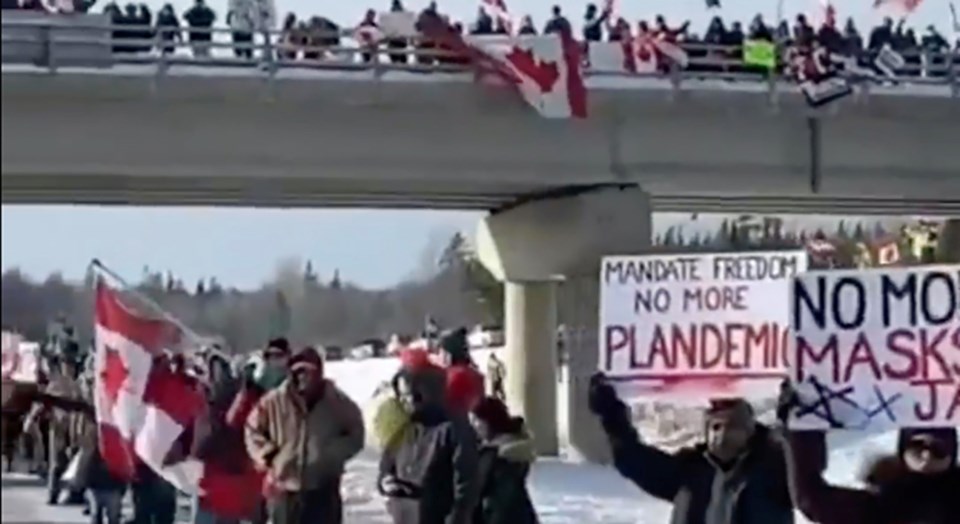
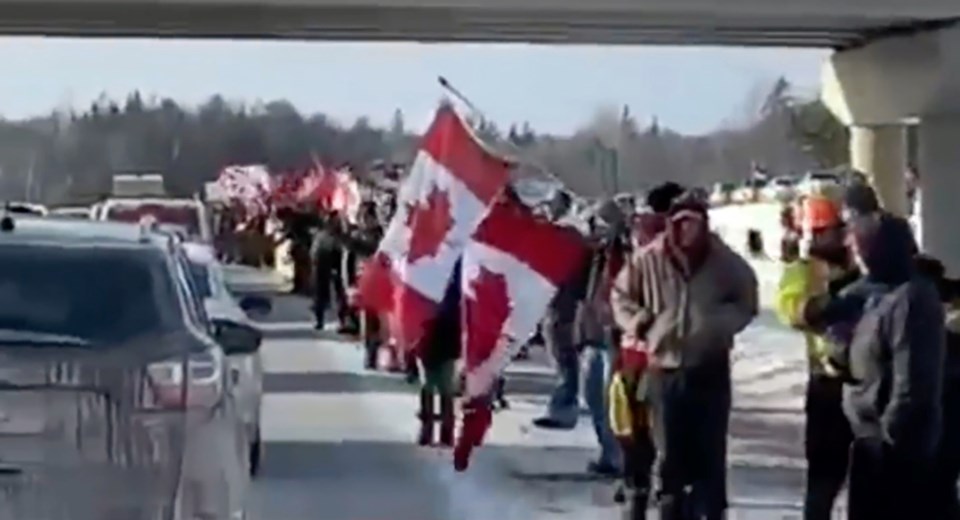
“People stood in -30 degrees just to get a chance to see us come through," said Barber at the inquiry.
“It [convoy] was 25 kilometres long. There were a lot of tears and emotions from the overwhelming support.”
VIDEO: Watch a participant in the convoy that went from British Columbia to the Parliament buildings in Ottawa as he live streamed and becomes overwhelmed with emotion at all the people waving to the convoy from the overpasses in January and February 2022.
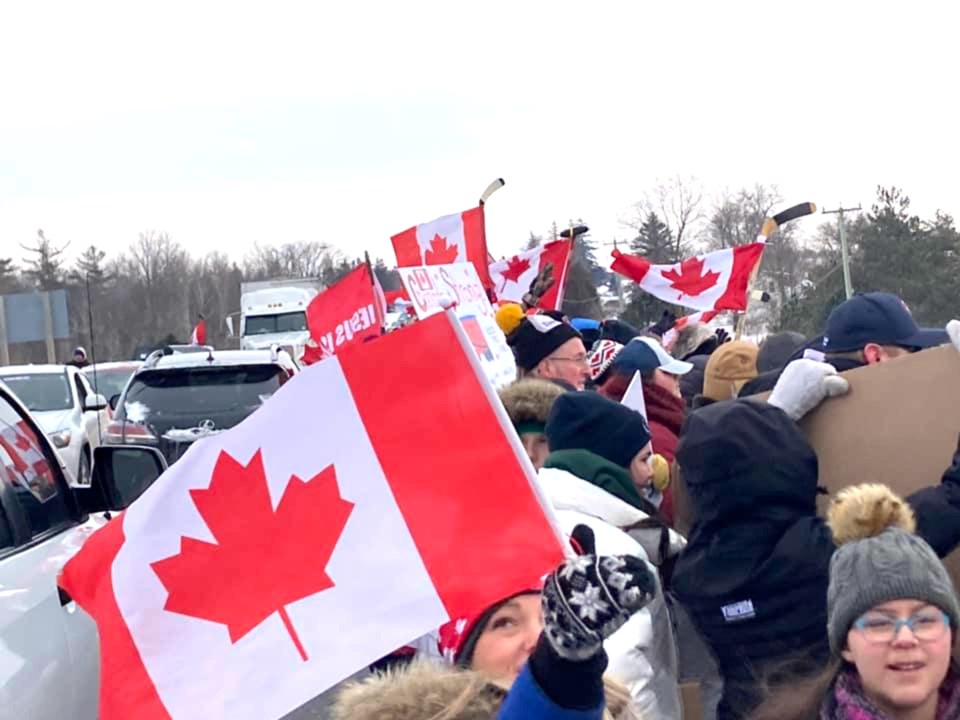
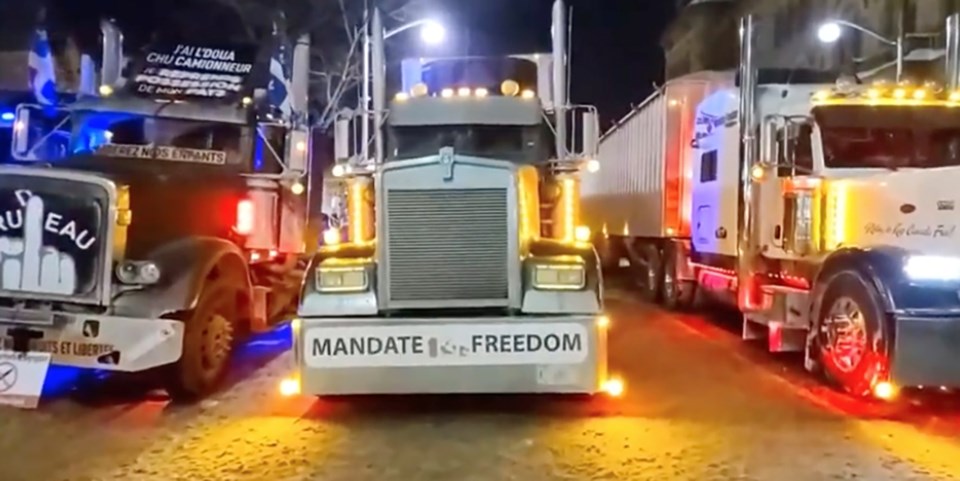
Barber told the inquiry that the truckers had a code of conduct and ethics that all participating in the convoy were expected to follow.
“Safety was our number one priority.”
The truckers had road captains from each province and organizers were in daily contact with police.
“Law enforcement is to be respected,” was the message to participants, said Barber.
He said the truckers wanted the mandates removed, had public support, and didn’t want another Jan. 6, U.S. event.
“We had the public support,” said Barber, and if protesters “acted like [expletive]” they would lose that support.
Overwhelming support for truckers
The RCMP told the convoy that there were too many people wanting to see the convoy in Winnipeg and it would be unsafe for the truckers to go into Winnipeg so they continued east.
“In Winnipeg the Hutterites came with a food trailer. The RCMP said the number of people there was too great and we couldn’t go in. The Hutterite trailer followed us to Canora and fed us. It was cold.”
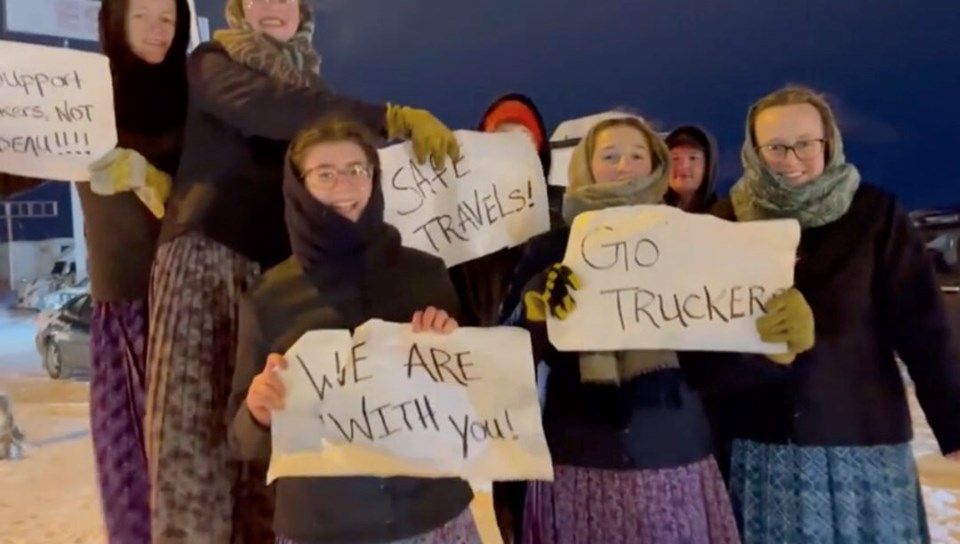
The Ontario Provincial Police Service led the West convoy east into Ontario.
“Marty met us at the scales at the border of Manitoba and Ontario,” said Barber.
Arriving in Ottawa
When the West convoy led by Barber arrived in Ottawa, truckers who arrived early had already taken up the staging area where they were to park.
They were all semi-truck operators “from my home province,” said Barber.
He ended up parking on Wellington.
“We were never asked to move by police,” testified Barber.
He admitted that the horn honking was annoying and said he did try to get the truckers to stop honking their horns.
“It was loud but it was peaceful.
“It was all peace, love, and unity; after two years of lockdowns people got to live again. There were a lot of tears, hugs, and laughter. It changed me. It humbled me."
Barber testified that Ottawa residents came down saying they had to see it for themselves because the media wasn’t portraying the Freedom Convoy properly.
He said businesses in downtown Ottawa told him that they hadn’t made as much profit in the last two years as they did the three weeks that the protesters were in Ottawa. He added that truckers were mopping floors at Tim Horton’s because staff was too busy.
The trucks, vehicles, and protesters grid-locked the streets near the Parliament buildings in early to mid February 2022.
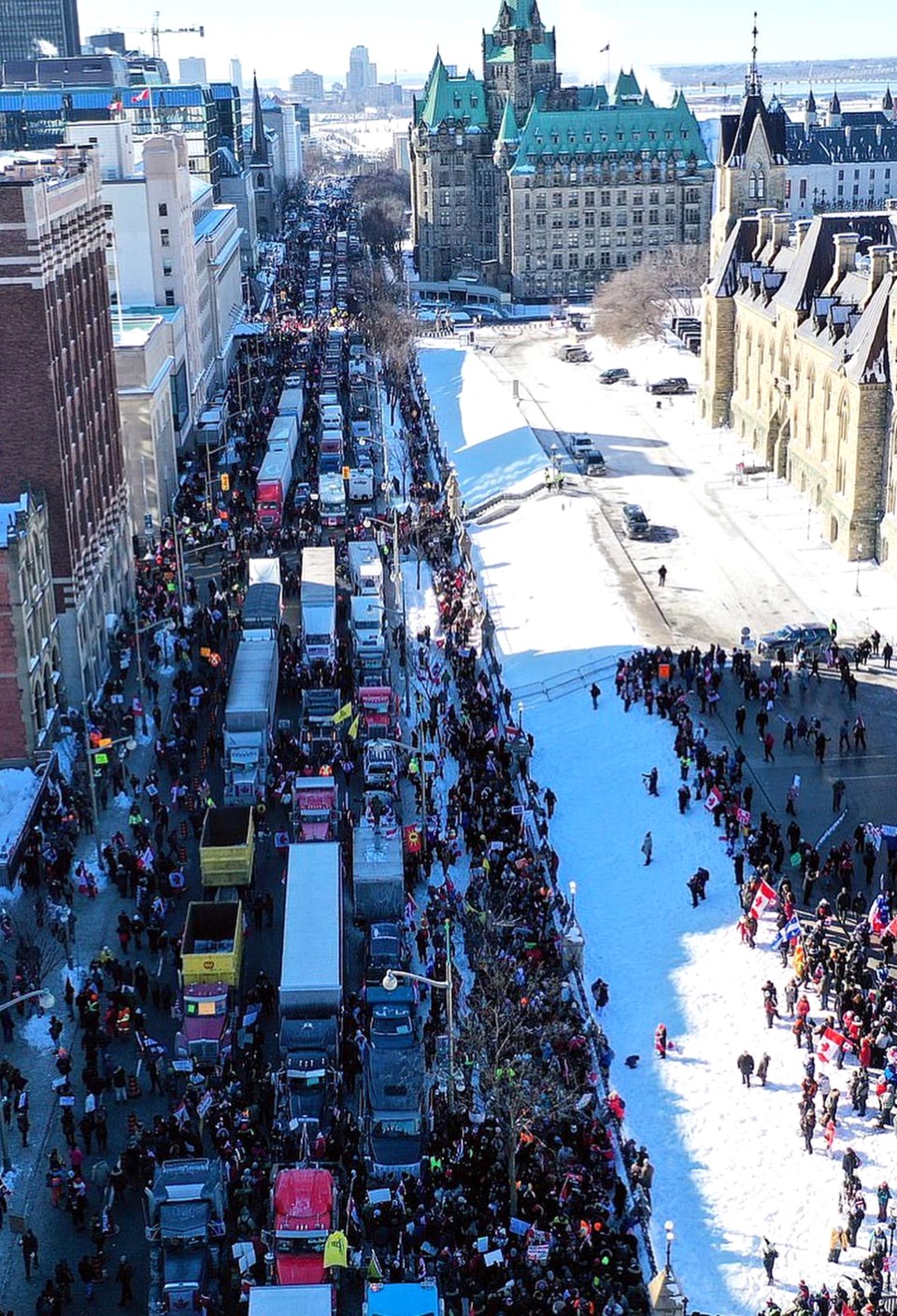
Barber was arrested at the protest in downtown Ottawa in February. His personal and corporate bank accounts were frozen. He testified that a Saskatchewan businessman stepped up and helped some of the truckers financially.
Don't count on social media to deliver your local news to you.
Click here to bookmark SASKTODAY.ca's Crime, Cops and Court section.
